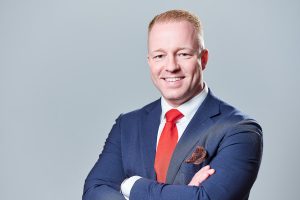
Special Focus: What do philanthropists need to help them give big?
July 7, 2021
Blog: What is Lead Community Fundraising and why is it important now?
August 4, 2021The European Commission has proposed a new package that aims to harmonise anti-money laundering rules across Europe. Our columnist Patrick Gibbels takes a look at what’s in it.
Money laundering and terrorist financing are cross-border phenomena that can affect many nonprofits. The cross-border nature of these illegal activities also makes them difficult to tackle at national level.
Whilst the EU provides a framework via EU directives, member states have their own interpretations of these rules, resulting in a scattered regulatory environment and legal uncertainty for many nonprofits operating cross-border. Of particular relevance to most nonprofits will be the rules regarding beneficial ownership, which directly affects organisations’ board members. The European Commission has now proposed a new package that aims to harmonise the anti-money laundering (AML) and combating the financing of terrorism (CFT) rules across Europe, providing clarity for organisations and making it easier for them to comply.
In my column for the April edition of Fundraising Europe, I wrote that some of the existing rules on AML/CFT can cause confusion among nonprofits. A critical area of misunderstanding is reporting requirements, more specifically the rules regarding beneficial ownership.
Beneficial owners are board members of an organisation directly benefiting from the organisation. But this is interpreted differently across member states. In the context of a nonprofit, a board member is quite different to a beneficiary and does not always have financial ownership, so the term can cause great confusion and results in a lack of uniformity when organisations report the nature and extent of the beneficial interest held. The new regulation ensures the consistent identification of beneficial owners and lays down harmonised beneficial ownership rules. The Commission proposes for member states to be required to notify the Commission with a list of the types of organisations where beneficial owners are identified.
Under the Single Rulebook, the Commission proposes a consistent approach to the beneficial ownership transparency regime which requires ensuring that the same information is collected on beneficial owners across the internal market, introducing precise requirements concerning the information that should be collected in each case. That information includes a minimum set of personal data of the beneficial owner, the nature and extent of the beneficial interest held in the legal entity or legal arrangement and information on the legal entity or legal arrangement.
The European Commission furthermore introduces a new agency called the EU AML Authority (AMLA), which will supervise certain high-risk entities directly, and play a coordinating and supervising role vis-à-vis the national supervisory bodies, in light of the Commission’s overall harmonisation efforts.
The Commission also wishes to introduce a cap on cash transactions of €10,000, making it more difficult for criminals to launder money. Some member states currently have much lower caps, which they are allowed to keep, but others, such as Germany, have no cap at all. We expect this to be a key subject of debate amongst the European Parliament and the European Council, who will still need to scrutinise and approve the European Commission’s proposals.
The Commission’s proposal will now be passed to the European Parliament and the Council, who will scrutinise and amend the proposal. EFA welcomes the Commission’s efforts to clarify and harmonise, but urges the European Parliament and the Council to take a risk-based approach when scrutinising the proposal, to avoid unnecessary administrative and regulatory burdens on nonprofits.
About Patrick Gibbels

Patrick Gibbels, Gibbels Public Affairs
Patrick is EFA’s public affairs columnist in Brussels. He is the director of Gibbels Public Affairs. Follow Patrick @GPA_Brussels.
Read more from Patrick in our View from Brussels column here.




